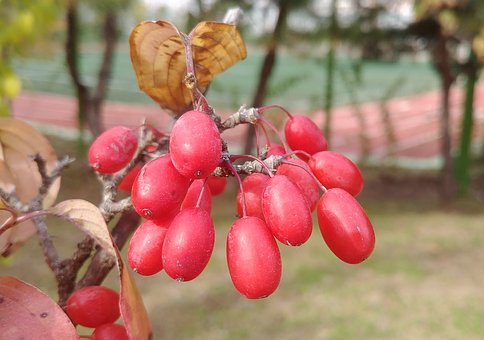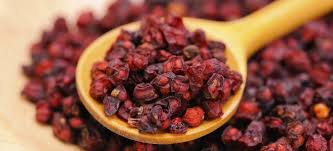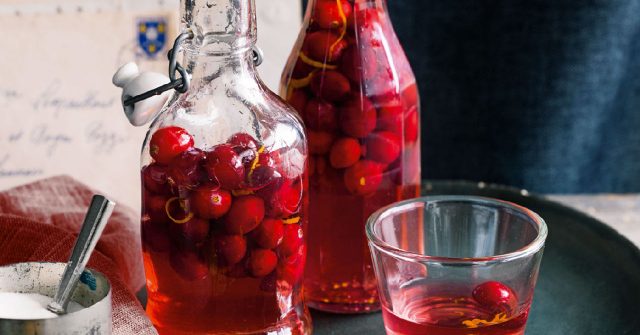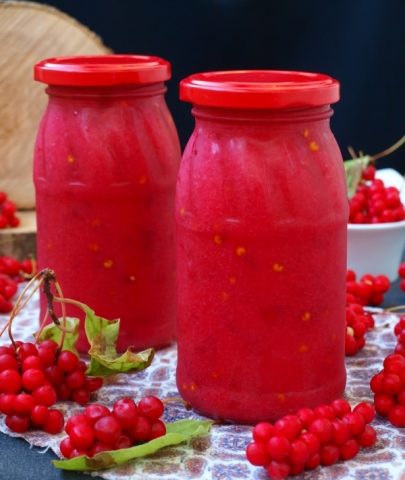Content
- 1 How are lemongrass berries useful?
- 2 Indications for use
- 3 Why are fruits harmful?
- 4 Contraindications to the use of lemongrass fruits
- 5 When to pick lemongrass berries
- 6 How to dry lemongrass berries
- 7 How to eat lemongrass berries
- 8 How many lemongrass berries can you eat per day
- 9 How to cook lemongrass berries
- 10 Terms and conditions of storage
- 11 Conclusion
People appreciate lemongrass for its special healing properties that relieve many ailments. Useful substances are found in fruits, stems and leaves of lemongrass. But in folk medicine, the use of berries is more practiced. There is a simple explanation for this - the fruits of Schisandra have the highest concentration of nutrients, they are easier to collect and store for storage. It is important to figure out what the benefits and harms of lemongrass berries are for humans.
Schizandra chinensis (schizandra) is a wild tree liana with fiery red bunches of berries that grows in Primorye, Khabarovsk Territory, China and southern Sakhalin. At present, cultivated varieties of this plant have been bred, which allowed it to spread almost throughout the entire territory of Russia.
How are lemongrass berries useful?
The special qualities of lemongrass have long been confirmed by the long-term practice of ordinary people and the research of scientists. Its constituent vitamins, mineral salts, tannins and tonic substances, essential oils, sugars and other useful microelements can have a positive effect on the human body. Schizandra fruits have medicinal properties.
The valuable qualities of lemongrass berries are as follows:
- produce a tonic effect, improve working capacity, increase the body's endurance, add strength;
- are a powerful energetic;
- activate the work of the nervous system;
- improve mood;
- remove depressive conditions;
- strengthen the protective functions of the body;
- help to cope with colds;
- contribute to the adaptation of the body in critical conditions;
- useful for prolonged mental and physical exertion, with a sharp change in climate;
- improve the quality of blood;
- have a positive effect on the entire cardiovascular system;
- increase blood pressure;
- lower blood sugar levels;
- increase visual acuity, improve eyes;
- improve the functioning of internal organs and the gastrointestinal tract;
- normalize metabolism;
- relieve hangover syndrome;
- normalize sleep.
Schizandra berries provide benefits for the human body, but they are recommended to be used with caution, only for medicinal purposes. You can fully experience the healing effect of the fruits only with regular use in small courses.
Indications for use
It is possible to use the berries of the Chinese magnolia vine for preventive purposes, but there are a number of disorders in which the fruits of the plant will be especially useful:
- colds;
- nervous disorders and depressive conditions;
- respiratory diseases;
- anemia;
- disruptions at the hormonal level;
- hypotension;
- impotence;
- diseases of the digestive system;
- diabetes.
The use of lemongrass fruits in complex treatment with other drugs increases the chance of recovery for cancer patients, patients with hepatitis C and tuberculosis. Lemongrass extract is also actively used in skin care. It is included in tonics. Medicines based on lemongrass are not addictive.
Why are fruits harmful?
Schizandra berries have the ability to activate many vital functions in the body. In some cases, this quality of the medicinal plant can lead to side effects, and sometimes even cause severe harm to human health. Usually this result occurs due to an illiterate dosage. Supersaturation with lemongrass fruits can lead to the following conditions:
- nervous irritability, insomnia, depression;
- disruption of the digestive system, heartburn;
- a strong increase in blood pressure.
These symptoms disappear quickly if you reduce the amount of fruits consumed or stop taking them completely.
Contraindications to the use of lemongrass fruits
Despite the large number of beneficial properties in lemongrass berries, there are also contraindications to their use:
- allergy to berries;
- pregnancy and lactation;
- children under 12 years of age;
- hypertension;
- arrhythmia;
- pathological diseases of internal organs.
In order not to cause serious harm to health, before you start taking lemongrass fruits, you need to consult a doctor. The doctor will help identify possible restrictions on the use of the fruit of the medicinal plant, as well as adjust the dosage.
When to pick lemongrass berries
Lemongrass is perfectly cultivated in summer cottages. Under favorable conditions, about 3 kg of fruit can be harvested from one bush. The berries ripen gradually, from September to October, so it is impossible to harvest the entire crop at the same time. But all the fruits must be removed before the first frost.
Fully ripe lemongrass is very delicate and easily damaged by touch. To avoid this, the berries are not picked separately, but the brushes are completely cut off.
The collection must be carried out carefully so as not to damage the vines. Since broken and damaged branches lose the ability to bear fruit, it is better to use scissors to cut the berry brushes.
Harvesting fruits from wild lemongrass is not always safe. It should only be produced in an ecologically clean area, away from exhaust fumes and factory emissions.
How to dry lemongrass berries
After harvesting, the berries must be processed within the first day to prevent rotting. Lemongrass fruits do not store fresh for a long time, they quickly disappear. Drying is considered a simple and effective method of preserving useful qualities.
Whole fruits
Cut brushes are carefully laid out in the shade, without direct sun exposure for 2-3 days, dried a little. You can hang the fruit bunches separately for the same period for the drying process.
Then the berries are separated from the stalks, plucking from the brushes. After that, they are dried in an electric fruit dryer or oven. The temperature regime should correspond to 50-60 ° С. Periodically, the berries must be stirred, preventing them from sticking together. The drying process under these conditions takes about 7 hours. The dried fruits of lemongrass acquire a red-brown hue (as in the photo), have a subtle specific smell and a bitter-sour spicy taste.
Berry seeds
Bones contain nutrients in large quantities. Immediately before drying the seeds, all the juice is squeezed out of the berries. It can be preserved and stored.
The seeds are separated from the skin and pulp residues by rinsing under running water. Then the clean seeds are laid out on a cloth or paper, left to dry at room temperature. To speed up the process, the seeds are placed in an oven or electric dryer for several hours. The temperature is kept in the region of 60-70 ° C, stirring regularly.
How to eat lemongrass berries
Dried fruits and seeds are actively used for the preparation of medicinal infusions and decoctions, and are also often used in cooking. Despite the not very pleasant taste, it is useful to eat a small amount of fresh berries - they retain all the valuable substances.
How many lemongrass berries can you eat per day
Schizandra berries have a rather unusual taste, or rather a combination of tastes - from sour-sweet to bitter-salty (the skin, pulp and seeds have a different taste). For preventive purposes, the fruits are recommended to be consumed fresh. In order not to harm your health, it is enough to eat 2-6 pieces daily. This amount is quite enough to add vigor to the body, avoid pathologies, remove depression and nervous disorders.
How to cook lemongrass berries
Schizandra berries are very often used in cooking. At the same time, their medicinal properties do not disappear, and the prepared dishes add vital energy and heal the body. In industrial production, lemongrass berries are added to some varieties of sweets. Schizandra fruits and seeds are included in teas and tinctures. Compotes and preserves are cooked. There are many recipes based on lemongrass berries.
How to brew lemongrass berries
Lemongrass decoction is the easiest way to benefit from the plant. Such a drink is capable of having a tonic and tonic effect.
Ingredients:
- 1 tablespoon of dried fruits;
- 200 ml of water.
Cooking method:
- Boil the berries for 10 minutes in an enamel bowl.
- Insist in a cool place for 24 hours, then strain.
- Add sugar if desired.
- The present broth must be consumed during the day.
You can take the broth not in pure form, but as part of black tea. It can be prepared as follows.
Composition:
- 15 g lemongrass berries;
- 1 liter of boiled water.
How to cook:
- Pour boiling water over the berries. Add black tea leaves.
- Insist 5 minutes.
- Add sugar or honey.
To get the benefits, not harm, of such drinks, the dosage should be strictly observed. It is not recommended to use decoctions and teas before bed, so that overexcitation does not provoke insomnia.
How to make lemongrass tincture
A good result for medicinal purposes is the use of an alcoholic tincture from lemongrass berries. This tincture can be purchased at the pharmacy, but there are ways to prepare it yourself at home. The basis for the tincture will be 70% medical alcohol or vodka. Berries can be used both fresh and dried.
Lemongrass tincture with vodka consists of the following components:
- 30 g of dry lemongrass berries;
- 0.5 liters of vodka.
Cooking procedure:
- Chop the berries, pour into a dark container, add vodka, close the lid tightly.
- Remove to a dark place for 2 weeks.
- Strain the tincture from impurities.
Take 1 teaspoon three times a day before meals. The course of treatment is 14 days.
Lemongrass tincture on alcohol:
- 100 g of dry or fresh berries;
- 500 ml of 70% alcohol.
How to do:
- Pour alcohol over the berries. Use a dark bottle. Seal with a stopper.
- Remove for 10 days in a cool, dark place.
- Strain.
Before use, the tincture must be diluted with water in a 1: 1 consistency. Take 1 teaspoon before meals 3 times a day. The course of treatment is 10 days.
Another tincture on lemongrass berries can be used as an external remedy for diseases of the musculoskeletal system and rheumatism. The method of treatment is as follows. Painful areas are lubricated with tincture 2 times a day. An evening procedure is best done before bedtime. The course of treatment can last up to 1 month.
You can make a delicious and healthy vodka tincture.This is how a tincture is prepared not for medicinal use:
- 1.5 cups fresh lemongrass berries;
- 1 glass of honey (sugar can be used);
- 0.5 liters of vodka.
Cooking procedure:
- Mix the ingredients in a jar.
- Remove to infuse.
- Stir and shake once a week.
- Insist 2-3 months.
The finished tincture has a dark pomegranate color and a pleasant smell.
Schizandra berries with honey
The beneficial properties of lemongrass fruit can be greatly enhanced by adding honey to them. It turns out to be an excellent delicacy that gives an energy boost for the whole day. The composition stimulates the work of the cardiovascular system.
Cooking method:
- Chop fresh berries.
- Pour honey over, leave for 2 weeks.
Store in a refrigerator in a dark container. Use when added to tea at breakfast.
Lemongrass tincture with the addition of honey also has a beneficial effect on the body. 1 glass of tincture requires 1 teaspoon of honey. Take 1 tablespoon three times daily before meals.
Schizandra berries with sugar
This method is great for harvesting lemongrass berries for the winter. Fresh fruits are washed, dried and covered with sugar in the proportion: 1 part berries to 2 parts sugar. The resulting mixture is transferred to jars and rolled up with lids. In this state, the berries retain all useful qualities until the next harvest. Store in a cool place.
Berry juice
Juice from berries perfectly preserves all the healing properties of lemongrass. It is prepared from fresh fruits that have been stored for 1-2 days beforehand. The squeezing process is best done manually in order to avoid crushing the seeds (this adds an unnecessary bitter taste to the juice). Add sugar equal to its double volume to the received amount of juice. The sugar must completely dissolve in the juice. Pour the resulting solution into dark bottles, roll up the lids.
Juice prepared in this way is stored in a cool, dark place. Shelf life is up to 3 years, while the juice does not turn sour or mold. Berry juice is added to all kinds of teas, compotes, baked goods, or consumed on their own in small doses.
Marmalade
From freshly squeezed juice, you can make a healthy delicacy - marmalade. It will not be difficult to make it. For marmalade you need:
- 1 liter of lemongrass juice;
- 2.5-3 cups of sugar;
- 3 tablespoons of pectin.
Cooking method:
- Add pectin to the heated juice, leave for half an hour to swell.
- In another bowl, boil the sugar syrup and 150 g of juice.
- The swollen mixture with pectin is added to the syrup and boiled until thickened.
- Hot marmalade is poured into prepared containers and left to solidify.
- Before use, you can cut it into small pieces for convenience.
This medicinal sweetness perfectly helps the body in the fight against colds in the cold season. Marmalade has a very pleasant taste and aroma.
Terms and conditions of storage
For better preservation of the medicinal properties of lemongrass fruits, it is necessary to correctly observe the terms and conditions of storage.
Store dried fruits and seeds in a cool dry place in cloth bags. Shelf life is 2 years.
Healing homemade tinctures can be stored for a long time without losing their qualities. For storage, choose a dark, tightly closed container. Keep bottles with tincture in a cool place.
It is recommended to keep the berries filled with honey on the lower shelf in the refrigerator in a dark glass container. The shelf life is long. But it is better to consume it before the next harvest.
Lemongrass berries with sugar, rolled into jars under the lids. Banks are cleaned in a cool place. Expiration date - 1 year.
Lemongrass juice is stored for a long time. It is rolled up in jars under the lid and put away in a cool, dark place. The shelf life of the juice in this form is 3 years.
Jam and jam remain healthy for 1–2 years.Store in a dark place, the temperature does not matter (both in the refrigerator and at room temperature).
The marmalade is kept in the refrigerator. It is advisable to use it within 1-2 months.
Conclusion
Having decided to take the fruits for medicinal purposes, it is worth remembering once again what the benefits and harms of lemongrass berries are. Before starting the appointment, you must visit a doctor in order to identify contraindications. Strict adherence to the dosage will help get rid of many problems without the appearance of side effects.












